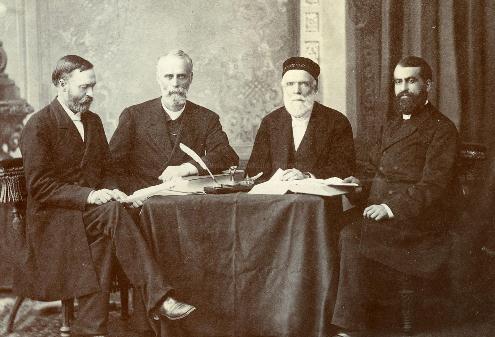Translators needed for Europeana portal
Could you help Europeana be more widely understood?
We are looking for volunteers to create high quality translations for texts on the Europeana portal. We need people who can work in the following languages:
- Basque
- Czech
- Croatian
- Irish
- Estonian
- Italian
- Lithuanian
- Hungarian
- Romanian
- Slovenian
- Slovakian
- Swedish
Is it a big commitment?
As some translations have been undertaken in the past, to varying degrees, some languages have a longer 'to-do' list than others. The list above shows the languages we need the most urgent help with. We already have a good translation team in place for the other European languages.
Translation tasks will vary, from just a few words to whole paragraphs, and as we can have up to two people working on each language, you can share the load with someone else.
Because you'll be working on the static content of the portal e.g. the About page or Help information, we won't be making frequent requests - once the pages are all up-to-date with good translations, we'll only ask for your help when new static content is added, or something is changed.

'Teamwork', 2008, The Wellcome Library and The European Library, CC-BY-NC-ND.
What will you be translating?
The static text on the Europeana portal - so, the permanent text that is presented on every language version, such as the Help pages. If you'd like to see an example, go to the FAQ page and select 'Slovenský' (Slovak) from the 'Choose a language' drop-down list at the top right. You can see that some text has been translated into Slovak, but some remains in English.

An article about translation wouldn't be complete without this great image from Europeana of scholars translating the Bible. 'Bible Translators', Anatolia College, public domain
What are the practicalities?
The tool you'll use for translations is called Rosetta. We'll provide documentation that shows you how to use it and you can contact us with any questions. Once you have an account, it's easy to log in, see what needs to be done and start adding your translations.
Why should you help?
Because you'll be doing something concrete to help the citizens of Europe access and understand their cultural heritage.
Because your real-life language skills are so much more useful than automated translations.
Because Europeana is a real team effort, and we want you to be part of that team.
Want to help?
If you have a good knowledge of English and can provide high quality translations into one (or more) of the languages listed above, we want to hear from you.
Please email Anna at [email protected]
